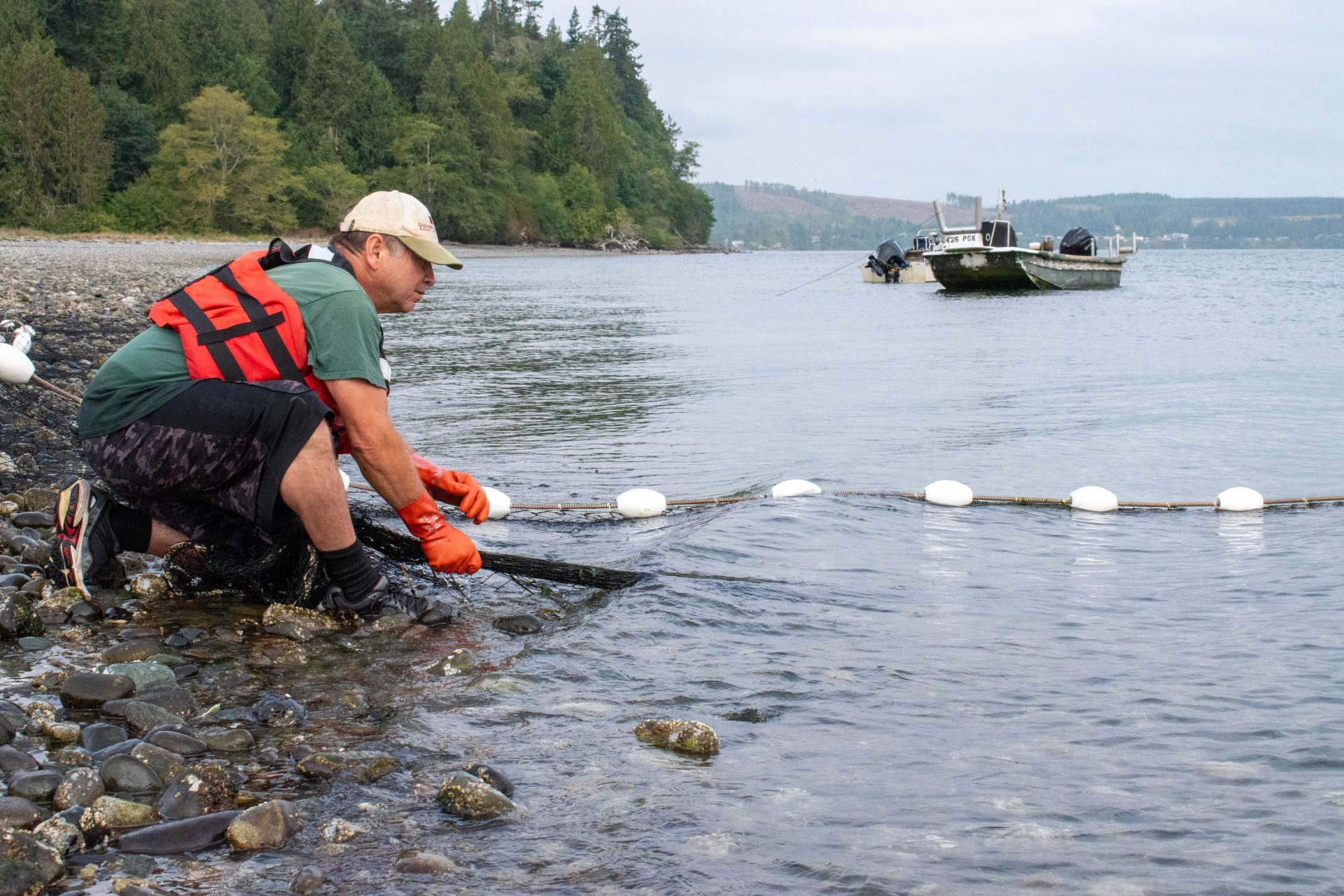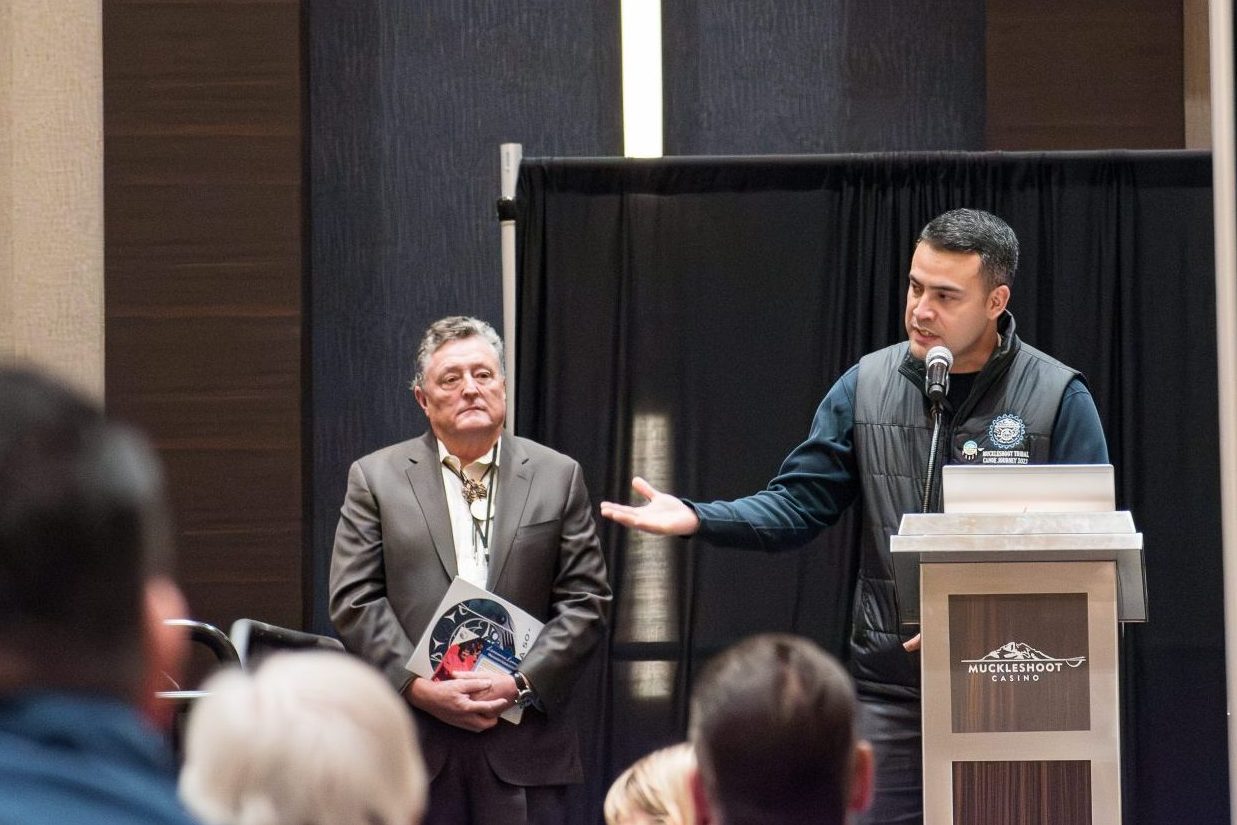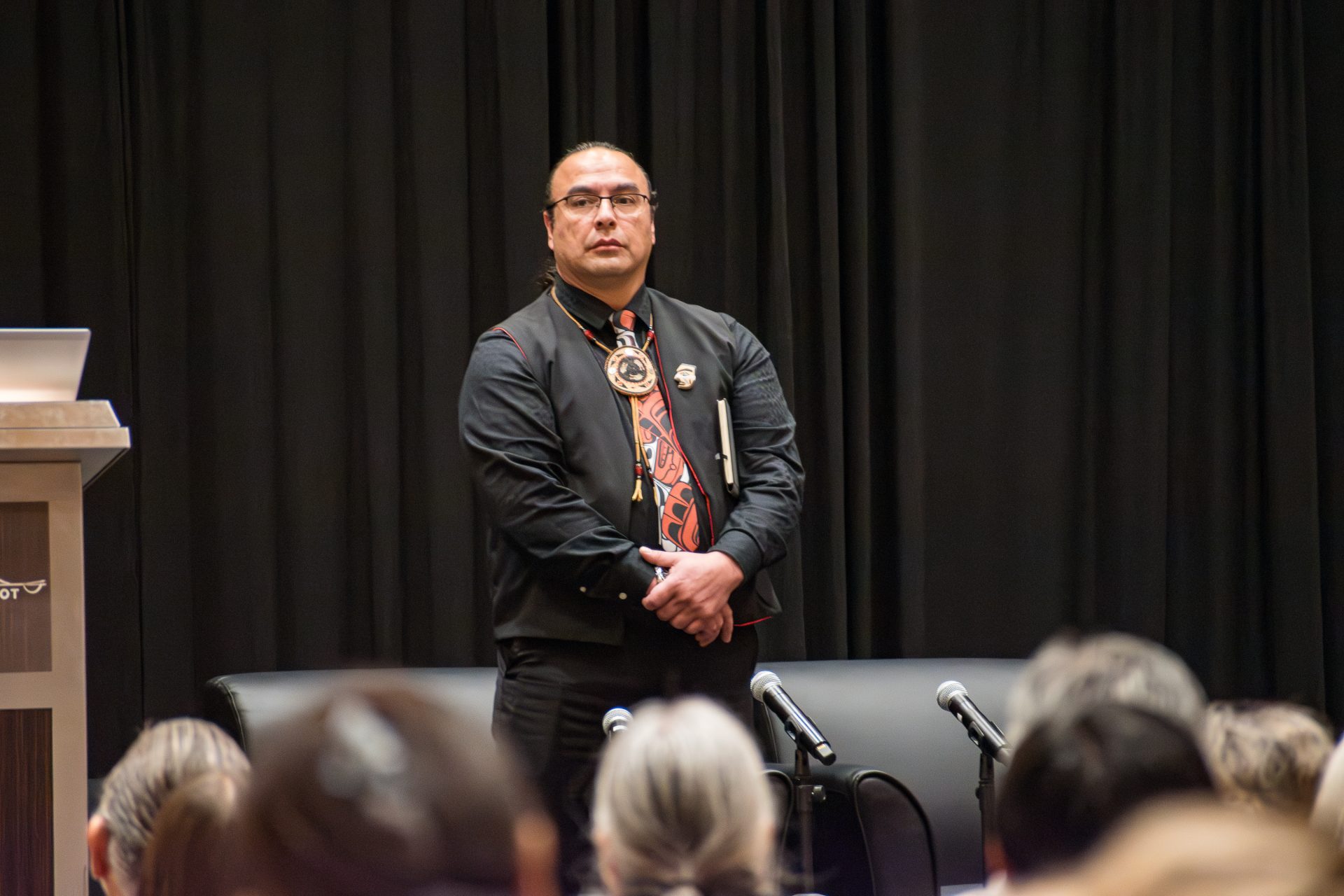A LOT OF BILLS
So far, there have been more than 2,000 introduced this session. Most legislative committees are overwhelmed with bills and the pressure to have hearings and votes on all the bills is intense, particularly with the first bill cutoff on Feb. 28. The Priority Bills List, distributed to all tribes, provides a look at bills identified as priority natural resource/environment-related bills for you to consider. The list provides an initial recommendation of whether to support, oppose or remain neutral. Please remember to share any thoughts you have on these bills with Steve Robinson at [email protected] or (360) 528-4347. It’s always best to have a united front in the legislature. Those bills that do not have a consensus among the member tribes of the Northwest Indian Fisheries Commission will be earmarked as such on the list. If there is disagreement on any such listing, please let us know.
SOME PRIORITY BILLS TO BE CONSIDERED THE WEEK OF FEB. 19
Note: Please also check the Legislative Hot Sheet and the Priority Bills List for more complete information.
Monday:
The Senate Government Operations Committee heard SB 5810, a supportable bill that promotes preservation of open space for wildlife. The Senate Natural Resources Committee heard SB 5733, the HPA Flooding Bill. We have opposed the House counterpart of the bill, HB 1748, but the House bill, sponsored by B. Sullivan, is scheduled for executive action in House Agriculture on Feb. 21. Tribal testimony on the bill was definitely in the minority. The bill requires WDFW to consider fish and private property, etc. on an equal par, and also requires the agency to expedite permits if counties determine that chronic flood problems (2 years) exist. Tribes and environmental organizations oppose the bill as written. It is a good one for tribes to weigh in heavily on. That committee will also hear SB 5923 on aquatic invasive species—a favorable bill that strengthens enforcement to help prevent the introduction of damaging species from other waters. Another flood control bill, HB 1339, the “Emergency flood control/streambank restoration” bill, would also enable counties to surge forth with all kinds of projects intended to prevent flood damage. This bill, however, remains in the House Agriculture Committee.
Tuesday
The Senate Government Operations Committee will hear SB 5684 regarding major industrial growth within UGA’s. The primary concern with this one is the elimination of population limits.
The House Local Government Committee will hear HB’s 2091, which would require “reasonable” measures for growth management (okay) and 2092 on Buildable Lands. This bill requires DOE to communicate with counties about the specific expectations of growth management (okay with amendments).
Wednesday
The Senate Transportation Committee will conduct a work session on the Hwy. 520 EIS. Also, the Washington Wildlife and Recreation Coalition will conduct a board meeting in the Columbia Room of the Legislative Building, commencing at 2:30 p.m., followed by a reception in the Governor’s Mansion at 5:30 p.m.
Thursday
The House Local Government Committee will hear HB 2212 and 2213, bills related to Critical Areas Ordinances. Opposition is recommended on these bills, which seek exemptions from CAO’s on the basis of farm plans, etc.
The House Agriculture Committee will hear HB 1241, a bill providing exemptions from the Shoreline Management Act for “normal maintenance” which should be opposed.
The Senate Government Operations Committee will hear SB 5852 on Rural Villages, a bill that has gone through extensive modification and which, as of yet, does not have a tribal consensus.
Friday
The House Puget Sound Committee will be briefed on the effects of upland activities on the water of Hood Canal.
FOCUS ON PUGET SOUND
HB 1374 has been approved by the Committee on Puget Sound on Feb. 13 and is on the House Floor. This bill would create the new Puget Sound Partnership, which would be tasked with restoring the health of the Puget Sound by 2020. The effort has an ambitious agenda that includes a greater emphasis on science-based results and which has generally been supported by tribes. Among other tasks carved out by the effort are the protection of native species, restoration of the health of marine and fresh water habitats, ensuring adequate groundwater levels in rivers and streams, and safeguarding clean water for both drinking and recreation.
PBDE BILLS MOVE
The “Phasing Out PBDE’s” bills, which tribes have supported (HB 1024/SB 5024) have moved along nicely. PBDEs are chemicals that commonly used for flame retardants, and also applied to many household appliances and furniture. PBDEs – an abbreviation for polybrominated diphenyl ethers – accumulate in the environment and can negatively impact brain development. Levels of PBDEs are increasing in people and in the environment, particularly in North America. It is important to phase out their use in common household products because these chemicals can break down and enter household dust and indoor air as well as food. The legisalation would only do so, however, if and when there are effective alternative flame retardants that are just as safe and feasible. HB 1024 is legislation that tries to curtail these toxins before they reach more hazardous levels. PBDE bills include SHB 1024 and SB 5034. The Senate bill, too, has passed its policy committee, and will probably go to full house debate soon. To check movement of other bills, please see the Priority Bills List.
BALLAST WATER
These bills include HB 1299, “Ballast water discharge requirements,” as well as HB 1738 and SB 5748. Tribes have opposed HB 1299, which would permit the dumping of untreated ballast water in cases deemed to be emergencies. The other bills are supportable. All have failed to move. Tribal testimony on HB 1738 and SB 5748 has essentially stated that no ballast water should be released in Northwest waters unless it is properly treated. If there is to be movement of any of these bills, it must come now.
RELINQUISHMENT OF WATER RIGHTS
Tribal testimony has opposed HB 1938 and SB 5849, the “Relinquishment of a Water Right” bills, on the basis that doing so will result in greater loss of water rather than less as proponents claim. Both bills remain in their original committees. Hopefully, they’ll die there. It’s the same old story. The farmers and other water users trek to Olympia in impressive numbers to say the “use it or lose it” laws are unworkable. They hang their story of woe on the position that the danger of losing their water right would logically coerce them to use more water than they need. The main thing wrong with such logic is that the facts prove them wrong. The relinquishment laws have typically resulted in less water used. Oppose. Also oppose SB 5877 on relinquishment, which is in the Senate Water Committee.
RURAL VILLAGES
The introduction of HB 1998/SB 5852, “Rural Villages/Growth Strategies in Rural Areas” bills, supposedly intended to help conserve land and water, failed to impress the tribes, especially when the study portion of the original bill included exemptions from water use restrictions. Conversion of agricultural or forest land and circumvention of the Growth Management Act also failed to impress. But replacement legislation being pondered now promises to manage water within existing water law and work within the confines of GMA. The likely outcome of this session is a state-funded study to determine the prospects of rural villages in managing urban sprawl. There is still no strong support for the process among most tribes, though there is a tendency among tribes that have weighed in on this to be more amenable to a study that looks at the broader picture of improved management of urban sprawl, especially in view of the skyrocketing population in western Washington.
BUILDING MORATORIUMS
HB 2002/ SB 5073: “Phasing Out Building Moratoriums in local areas where water rights have not been processed.” The title says it all. Local governments would not be able to declare building moratoriums in their regions, even if there is no water available to meet the needs of the development. The bills are in the House Agriculture and Senate Water committees. Recommended position: Oppose.
GREENHOUSE GASES
Governor Gregoire has declared war on climate change, in recognition of the severe challenges such change is already bringing to the Northwest, as well as other parts of the country and the world. HB 1210, “Greenhouse gases, emission levels/reduction objectives” is one of the weapons that will hopefully be available to fight that war. The bill is in the House Agriculture & Natural Resources Committee.
HB 1239 — Questions and Issues
It appears as though this bill modifes the review authority of counties, cities and towns with regard to water system plans of special purpose (water-sewer) districts, or water utility elements of comprehensive plans of those utilities. Those reviews would be limited to the “procedures and criteria” contained in the 2003 Municipal Water Law, Section 8 (as codified in RCW 43.20.260), or rules adopted by the state Department of Health. The legislation has several problems:
(1)It would appear to preempt authority and criteria established in local code or administrative rules for review of these plans. Existing authority in Title 57, requiring local government review of special purpose district plans, has existed for years, and criteria/processes are understood. Such criteria can include, for instance, consistency with elements of the GMA comp plan (land use, zoning, critical areas, aquifer recharge, utility service), or other applicable plans that Counties are obligated by state law to implement (e.g., Coordinated Water Supply; Groundwater Management).
(2)There are no “procedures and criteria” for water system plans in the statute. The change made in the 2003 MWL required that DOH “ensure” consistency between local government comprehensive plans. The implication is that local governments make such a determination, and the DOH role is to ensure that the water system plan tracks with the comp plan. DOH has developed guidance and checklists that adopt a very limited view of the scope of this review, largely so that DOH’s workload is limited where local governments are not staffed to perform the review. However, none of the guidance documents/checklists are based on any direction in the statute. Nearly four years after passage of the legislation, DOH has yet to develop any proposed rules for this issue. DOH has said it may initiate rulemaking in 2007.
(3)It appears to set up two different standards of review for special purpose district plans—one for water system plans, one for sewer plans. If contained in a single comprehensive plan, it will be difficult to sort out.
Proposed solution: Insert a statement similar to “Nothing in this section shall be construed as authorizing the department of health to establish criteria, standards, or procedures for local government review of plans as required under this chapter, nor shall this section be construed as limiting the separate and independent authority of any city, town or county to establish criteria and standards under chapter 36.70A, or other land use or planning authority, for review and approval of such plans.”




